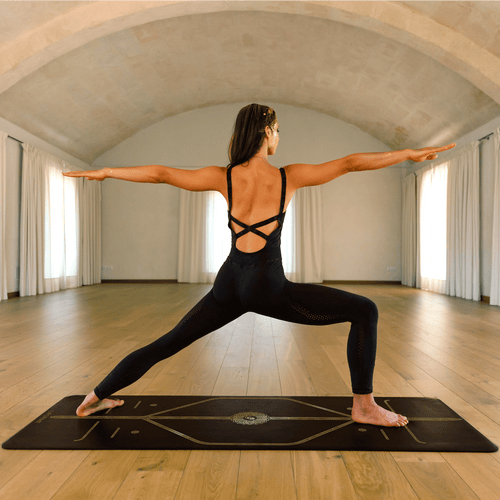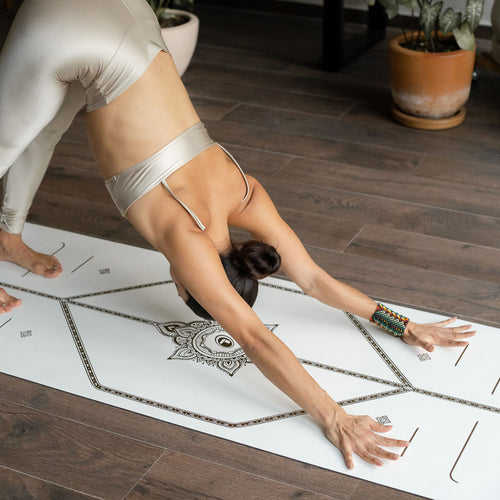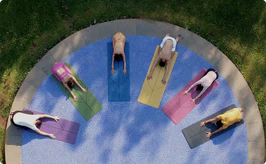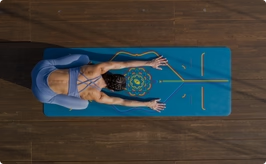






Liforme’s Unique & Original AlignForMe® Guide







It took Liforme five years of hard work and countless iterations to develop our distinctive AlignForMe® Guide.
There were no mats that looked like ours before we debuted our design in 2013. Now, they are everywhere.
We are fighting two types of copiers:
1. Producers of fake Liforme Mats
2. Copy-cats who replicate our alignment guide under their own brand names
Both are guilty of infringing on Liforme’s Intellectual Property (IP).
Liforme is the originator and trademark holder of the AlignForMe alignment guide. Anyone else who reproduces a version of our guide is trading on our innovation, reputation, and hard work. Only a Liforme Yoga mat will have the quality, performance, and ethical and environmental standards that justify our price point.
Our only official website is simply LIFORME.COM. Always check the URL, especially if the price seems too good to be true! Liforme mats are sold by some legitimate third-party sites, but only order from retailers you trust.
Our dedicated team works round the clock to report fraudulent websites and fake products. A key ally is our partners at Red Points, who have helped us remove over 40,000 mats that infringe Liforme’s IP from the internet. We’ve also successfully pursued legal action against copiers.
We’re so glad you asked! It’s quite easy: if you see a copy of a Liforme Yoga mat for sale anywhere on the internet, report it to us using this form. Once we verify the report, you’ll receive a discount on your next Liforme purchase and be entered into our monthly draw to win a Liforme Yoga Mat.
Terms and Conditions for Reporting Infringements
1. Purpose of Submission
By submitting a report through this page on liforme.com, you
agree that your submission pertains to a website, product, or other material that you believe infringes on our intellectual property (IP) rights, including trademarks, copyrights, or other proprietary rights. Your submission helps us protect our rights and take appropriate actions against any infringements.
2. Accuracy of Information
You agree to provide accurate, truthful, and complete information when submitting a report. You are responsible for ensuring that the information provided does not contain false, misleading, or fraudulent details. Submissions
found to be in violation of this condition may be disregarded.
3. No Confidentiality
You acknowledge and agree that any information or materials you submit through this page are not considered confidential. We may use the information you
provide for any purpose, including but not limited to investigating the
reported infringement, taking legal action, or notifying the relevant
authorities.
4. No Guarantee of Action
While we appreciate your submission, we make no guarantee or commitment to
investigate or take action against any report submitted. The decision to act on any submission is at our sole discretion, and we cannot provide details of any outcomes of actions we may take.
5. Prohibited Submissions
You agree not to submit any material that:
Is defamatory, abusive, obscene, or otherwise offensive.
Violates any applicable law or regulation.
Contains viruses or other harmful components.
Is not related to the purpose of this page.
6. Privacy and Data Use
We collect certain personal data when you submit a report, including your name and contact information. This information is used solely for the purposes of investigating your submission and taking necessary action. We do not share your
personal information with third parties, except as required by law or in connection with any legal proceedings related to the infringement.
7. Disclaimer
You agree and accept that in no event will Liforme Ltd. nor any of its affiliates, subcontractors, licensors, vendors, suppliers or resellers, nor any of its third party partners, have any liability to you or any third party with regard to your use of this page or your submission of a report of a copier.
8. Changes to Terms and Conditions
We reserve the right to modify these terms and conditions at any time. Any changes will be posted on this page.
9. Contact Information
If you have any questions or concerns about these terms and conditions, please contact us at info@liforme.com.


















